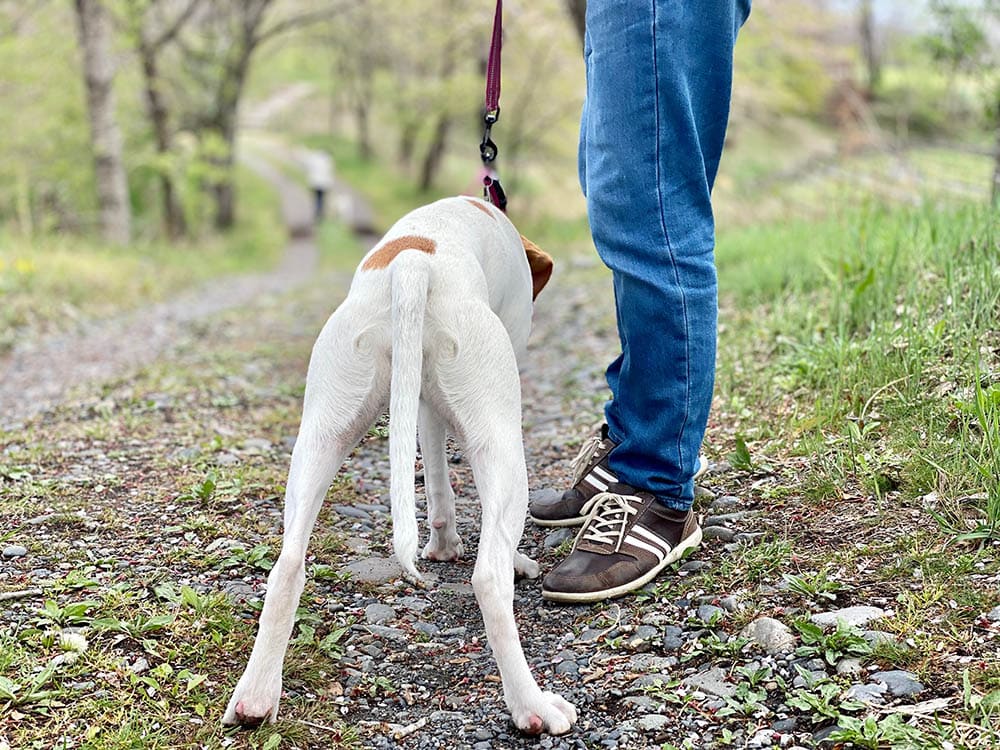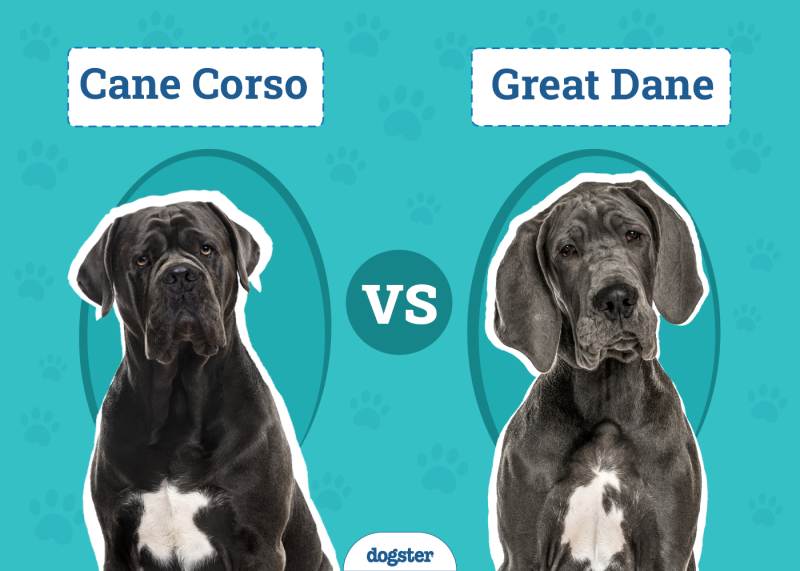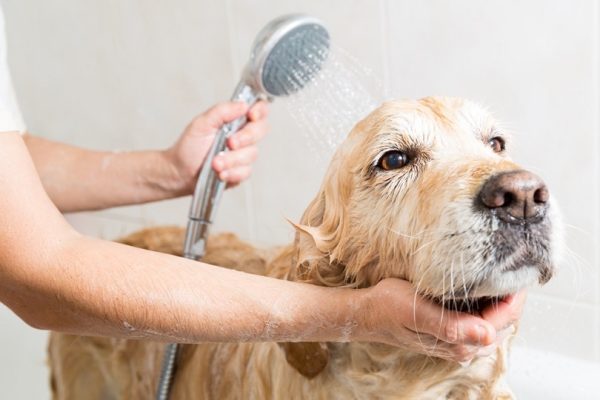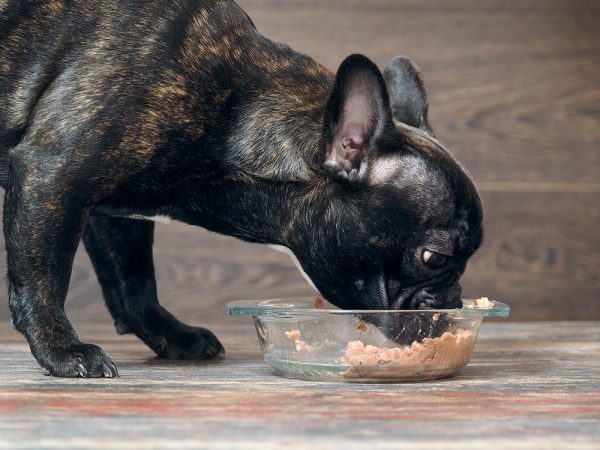Even after a lifetime with dogs, they can sometimes still spring a surprise on us. While most of those surprises are endearing and even sweet, some can be decidedly disgusting.
One such surprise might occur if your dog pees on you. You were unlikely to be expecting it, and it can be quite alarming. If it happens as a one-off, and there are no other signs of problems, it may have been an accident. But, it could also be that your dog is anxious, nervous, excited, or ill. It could even be marking you as its property, or it could be submissive urination.
Some of these causes do require further action to ensure the problem doesn’t get worse, and we have highlighted some of the most common reasons for this behavior, as well as ways to prevent it from happening again.

Causes
Consider what your dog was doing and what else was happening when the incident occurred. This will help you determine the reason why your dog peed on you. The most common causes include:
1. Accident
If your dog wasn’t aware you were there, it may have peed on you by mistake. This most commonly occurs when a dog is still puppy training but there may be other reasons that your pup accidentally urinated on you.
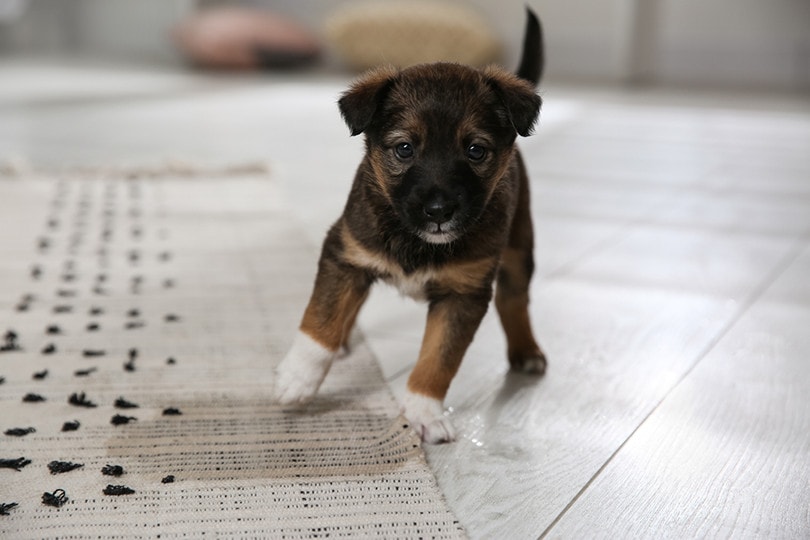
2. Nerves or Anxiety
It is common for dogs to pee when they get nervous, anxious, or scared. Loud and unexpected noises or the presence of a new dog or person could be enough to trigger an especially nervous dog and cause it to pee. If you happen to be standing nearby, this could mean that your dog will pee on you.
3. Excitement
Similarly, when a dog gets too excited, it can cause it to pee uncontrollably. An excited pee is most likely to occur when you come home or when somebody visits, but your dog might get overstimulated when you are playing or for several other reasons.
4. Attention Seeking
If your dog is getting less attention from you than it wants, it might take action to grab your attention, even if it knows that that attention will be negative. This is even more likely if your dog has peed indoors and you have shouted at them or reacted in some other way. If you have a new pet, or a new baby, in the house and this means that the attention you would normally give your dog is being given to the new family member, this could lead to attention-seeking behavior.
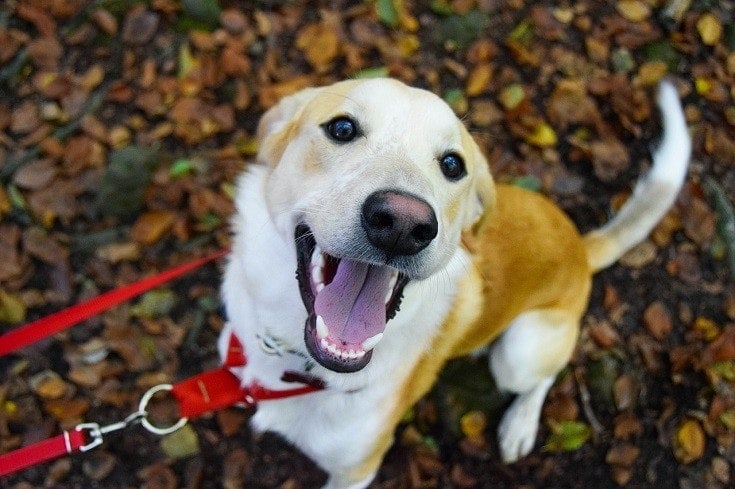
5. Submissive Urination
Submissive urination essentially happens when a dog wants to avoid confrontation. This reaction is based on fear, nervousness, or simply due to the acknowledgment of a higher-ranking individual, such as a human or another animal. Submissive urination is more common in nervous or insecure dogs and it will happen every time they are triggered, such as during greetings, scolding, or sudden movements. The amount of urine released is usually small.
6. Territory Marking
One of the reasons dogs pee is to mark their territory or their property. They pee against lampposts and trees, and many dogs will pee where there is already pee from another dog, in an attempt to take that territory and claim it as their own. Generally, your dog won’t pee on you for this reason unless something has happened or changed in the home.
The presence of a new baby may make your dog think it needs to mark you, for example.
7. Age
Puppies that are still being potty trained are more likely to have accidents. Senior dogs are not as capable of holding their bladder, and they too can have accidents in the house and potentially even on you or another family member. Consider the age and general condition of your dog when looking for a possible reason for this kind of behavior.
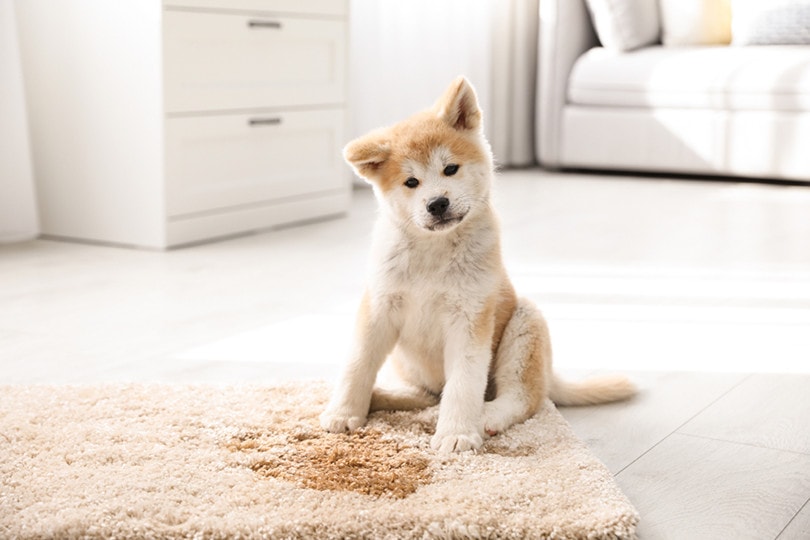
8. Illness
Some illnesses can cause a loss of bladder control so your dog might not be able to help but pee. Urinary tract infections are common causes of this kind of occurrence, but so too are diabetes and even dementia. If you notice any other signs of potential illness, as well as uncontrolled peeing, you should speak to a vet. At the very least, they will be able to eliminate any medical causes.
If you need to speak with a vet but can't get to one, head over to PangoVet. It's our online service where you can talk to a vet online and get the advice you need for your pet — all at an affordable price!

Prevention
Unwanted urination may be a one-off occurrence, but it could be a sign of another problem and, in some cases, it could be the start of a series of incidents. If your dog has peed on you, there are some steps you can take to help prevent future occurrences.
1. Stay Calm
Shouting and scolding your dog can be counterintuitive, and if they peed because they are ill and can’t control it, they may hide other signs and make it very difficult for you to tell they are ill. Even if this isn’t the case, you need to remain calm so you can identify the cause of the problem and take steps to help prevent it.
2. Determine the Likely Cause
Consider any changes to the home or your family life. Have you brought a new pet in? Is there a new baby in the house? These kinds of changes could be enough to have triggered the response. Also, think about what was happening at the time. Were there loud noises or something that might have scared the dog? Was it prevented from getting outside to be able to urinate in an acceptable place?

3. Retrain Your Dog
Some urination may occur because of poor or incomplete training. If your dog doesn’t know that it should be peeing outside rather than inside, then it is time to continue or restart potty training. Although it can take longer to train an older dog, it is never too late to start, so even if the dog has come to you later in its life, it should still be possible.
4. Eliminate Health-Related Causes
If the urination could have been caused by illness, consider any other signs. Has your dog been showing signs of increased or reduced appetite for food and water? Are they panting more than usual? Some of these signs could be an indication of illness and the vet will want to know about them so they can help ascertain what is wrong with your pup.
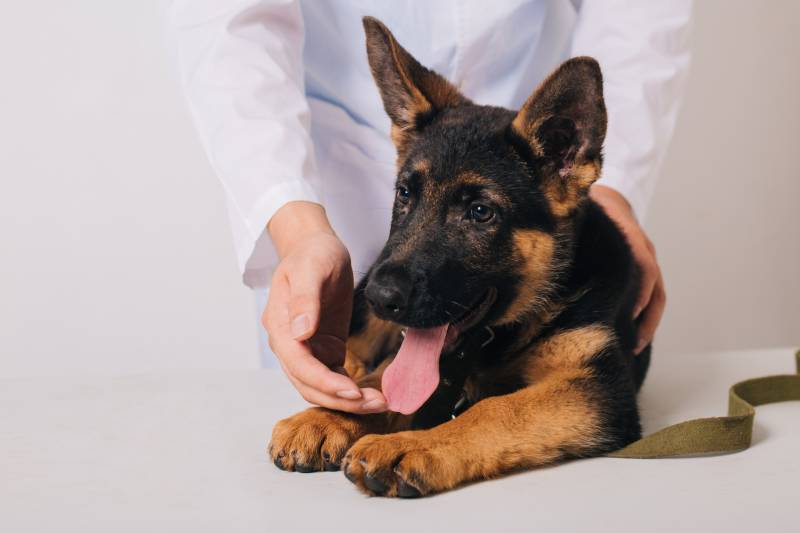

What Not to Do
As well as actions you should be taking, there are certain things you shouldn’t do. Some of these actions can make matters worse while others will have little to no effect.
Upsetting your dog’s emotions can have detrimental long-term effects, and they are unlikely to know why you are shouting in the first place. Ignore, distract, and then praise a positive action that you encourage but avoid shouting. Berating your dog could even cause them to pee again.
Crate training is a potentially very powerful tool in behavioral training, but the crate should not be used as a form of punishment. Your dog should associate the crate with positive experiences and if they get sent to their crate when they’ve done something bad, they will be reluctant to get in there at nighttime or when you leave the house.

Conclusion
Many of us share our homes and lives with dogs and we have a reasonable understanding of their behavior. However, they can still do things that surprise and even alarm us. If your dog has peed on you, there are many possible causes from the loud banging of the front door to over-excitement or even illness.
Try to identify the likely cause and take action to prevent it from happening again, but don’t shout at or punish your dog. It could make matters worse rather than better.
See also:
- 9 Signs of Submissive Dog Behavior: Vet Approved Facts & Advice
- My Dog Won’t Pee in the Rain, What Do I Do? 4 Solutions That Can Help
Featured Image Credit: Candy Candy, Shutterstock

